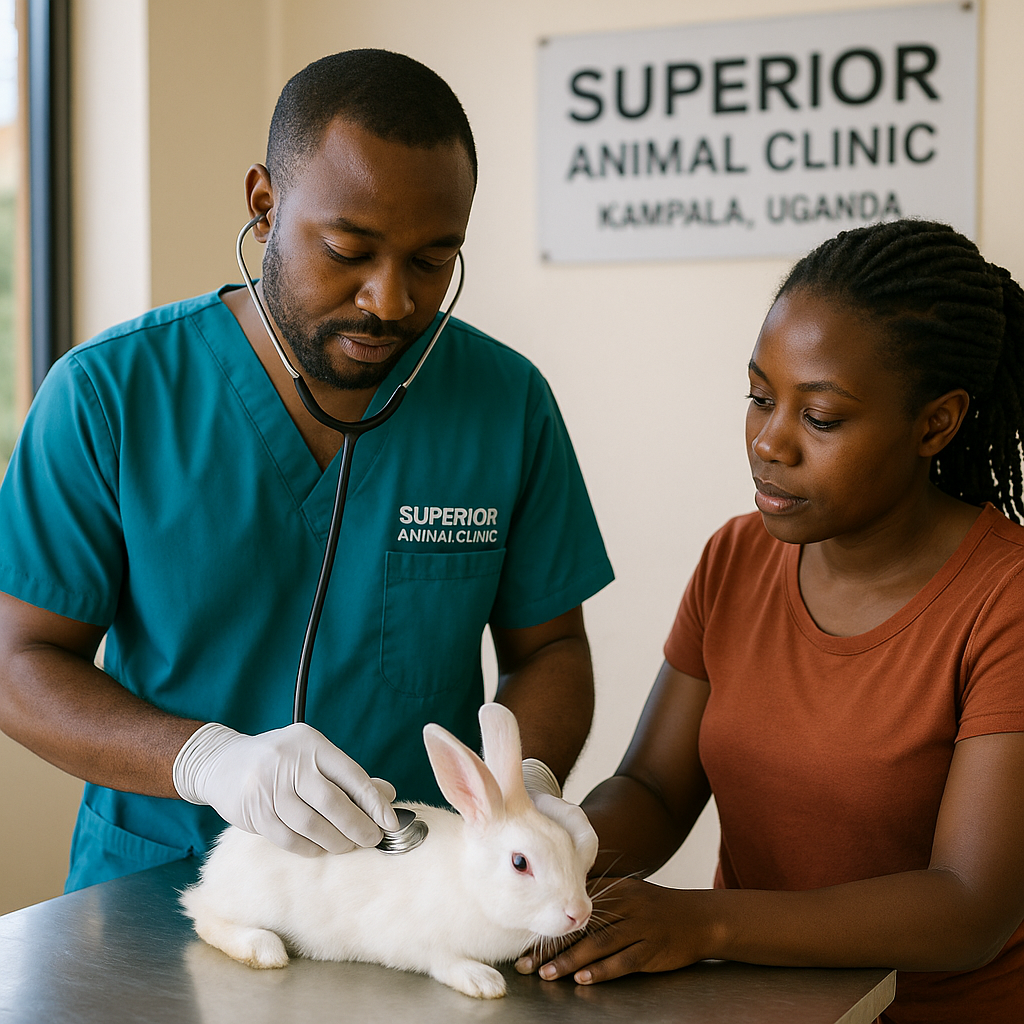
If you’ve ever watched your rabbit hop around happily in your home — maybe a fluffy New Zealand White or a curious Dutch rabbit — you know how quickly they become family. But what many rabbit owners in Kampala, Uganda, don’t realize is that spaying or neutering can literally save their pet’s life.
At Superior Animal Clinic in Makindye along Salaama Road, we’ve seen countless cases where a simple spay or neuter changed everything — from stopping aggressive behavior and unwanted pregnancies to treating deadly cancers in female rabbits.
Take for example, a rabbit we recently treated from Muyenga — she had stopped eating and seemed weak. After examination, we discovered a uterine tumor. A successful spay not only removed the cancer but gave her a new, healthy start.
That’s why we’re passionate about educating rabbit owners across Ntinda, Old Kampala, Lungujja, Kasubi, Nsambya, Katwe, Zana, Nakasero, Makindye, Buziga, Munyonyo, Rubaga, Muyenga, Bugolobi, Kabowa, Lubowa, and beyond about the benefits of rabbit spay and neuter.
Whether you’re keeping rabbits as loving companions or as part of your small backyard collection, this guide will walk you through everything you need to know — from the best age and cost to how to prepare and care for your rabbit before and after surgery — all done safely at Superior Animal Clinic, Kampala’s trusted veterinary hospital for rabbits and exotic pets.
Exact Number of Pet Rabbits Fixed in Kampala, Uganda at Superior Animal Clinic
Pet rabbit spaying and neutering services are still quite rare in Kampala, Uganda — mainly because only a few households keep rabbits as pets. However, at Superior Animal Clinic in Makindye, along Salaama Road, we’ve noticed a steady rise in awareness among pet rabbit owners. More people are realizing the health and behavioral benefits of sterilizing their bunnies.
Between 2024 and 2025, the number of pet rabbits brought in for spay and neuter surgery at Superior Animal Clinic increased by 50%, showing that responsible rabbit ownership is growing across Kampala.
Number of Pet Rabbits Fixed at Superior Animal Clinic (2024–2025)
| Year | Number of Rabbit Spays | Number of Rabbit Neuters | Total Rabbits Fixed |
| 2024 | 7 | 18 | 25 |
| 2025 | 11 | 27 | 38 |
All the rabbits fixed at Superior Animal Clinic were between 6 months and 1 year of age, which is the ideal period for rabbit sterilization.
Outcomes were excellent — 96% of the rabbits recovered smoothly without any complications. Only 3% of the female rabbits developed minor wound infections (which were successfully treated), and just 1% of the male rabbits experienced post-surgical complications.This remarkable success rate highlights Superior Animal Clinic’s expertise in exotic pet surgery and the growing trust among Kampala’s pet owners. If you’re considering getting your rabbit spayed or neutered, our veterinary team is here to guide you through every step — from pre-surgery preparation to aftercare — ensuring your furry friend stays healthy, calm, and happy.
Why Every Rabbit Owner in Kampala Should Spay or Neuter Their Rabbit
If you love your rabbit like Margie loves Zeo, then spaying or neutering them is one of the most caring decisions you’ll ever make. Many pet owners across Kampala — from Ntinda to Makindye, from Muyenga to Munyonyo — still think spaying and neutering are only meant for dogs and cats. But the truth is, rabbits need it just as much, if not more.
Let’s break down why every rabbit owner in Uganda should seriously consider it.
1. It Prevents Life-Threatening Cancers
Did you know that over 80% of unspayed female rabbits develop uterine or ovarian cancer by the time they’re four years old? It’s one of the leading causes of death in rabbits kept as pets.
At Superior Animal Clinic, we’ve treated many rabbits from areas like Muyenga, Bugolobi, and Lubowa suffering from reproductive cancers that could have been completely avoided with an early spay. Neutering male rabbits also prevents testicular cancer and prostate issues, keeping them healthier for years.
So, if you want your rabbit to live a long, cancer-free life, spaying or neutering is the smartest step you can take.
2. It Improves Temperament and Behavior
Unneutered male rabbits often become territorial, aggressive, and destructive — they spray urine, bite, and even fight with their cage mates. Female rabbits, on the other hand, can become moody or anxious during breeding seasons.
After surgery, rabbits become calmer, cleaner, and easier to handle. You’ll notice they stop spraying, digging excessively, or trying to mount everything around them. Many rabbit owners from Rubaga, Ntinda, and Buziga say their pets became “sweet and cuddly again” just a few weeks after neutering.
💕 3. It Makes Bonding Easier
Rabbits are social animals, but pairing two unneutered rabbits often ends in fights or injuries. Once spayed or neutered, they’re more relaxed and get along better with other rabbits — and even with cats and dogs in the home.
At Superior Animal Clinic, we often help pet owners safely bond their rabbits after surgery. Imagine your bunnies snuggling peacefully instead of fighting — that’s the difference a simple procedure makes.
4. It Helps with Litter Training and Cleanliness
Neutered rabbits are much easier to litter train. They choose one spot for their droppings, and their cages or hutches stay cleaner and smell fresher. That means less work for you and a happier environment for your pet.
If you’ve been struggling to train your rabbit at home in Kampala or surrounding areas like Ndejje, Nakawa, or Kololo, neutering can make a world of difference.
5. It Prevents Unwanted Pregnancies and Overpopulation
Rabbits breed fast. A single pair can produce over 40 baby rabbits in one year! Many end up abandoned or given away in poor conditions. By spaying or neutering, you’re helping control the rabbit population in Uganda and ensuring each bunny gets the care it deserves.
Even if your rabbit lives alone, accidents happen — and this simple surgery removes that worry completely.
🌿 6. It Extends Your Rabbit’s Lifespan
Spayed and neutered rabbits generally live longer, healthier lives. They face fewer infections, less stress, and fewer hormone-driven health issues. Most importantly, they enjoy a better quality of life, filled with calm, play, and affection — just like Zeo after his neuter.
7. It’s a Safe, Routine Procedure at Superior Animal Clinic
At Superior Animal Clinic, Makindye, our experienced veterinary team uses advanced anesthesia and gentle surgical techniques designed specifically for small animals like rabbits. We monitor your rabbit throughout the procedure, manage pain carefully, and guide you through every stage — from preparation to aftercare.
We’ve safely spayed and neutered hundreds of rabbits from Ntinda, Muyenga, Lubowa, Bugolobi, Munyonyo, Rubaga, and beyond — earning the trust of pet owners who want only the best for their animals.
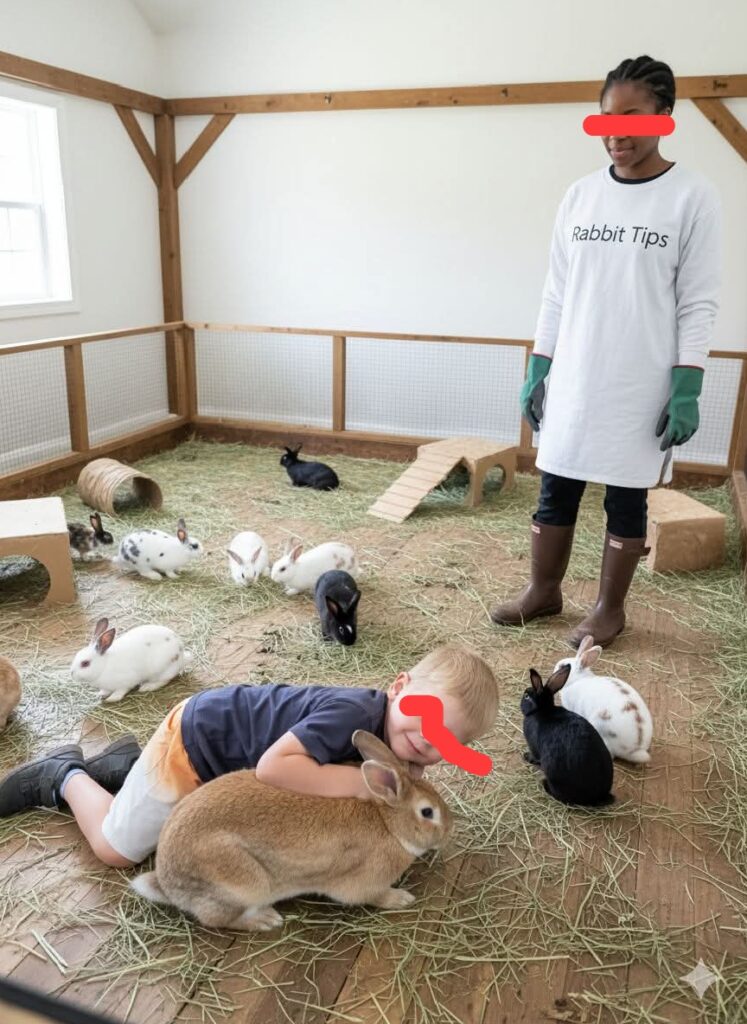
🌸 A Final Word for Rabbit Owners in Kampala
Spaying or neutering your rabbit isn’t just about preventing babies — it’s about giving your pet a long, healthy, and peaceful life. Whether your rabbit is young, mature, or already facing health challenges, our team at Superior Animal Clinic along Salaama Road, Makindye is here to help.
We believe every rabbit deserves the chance to live without pain, aggression, or disease — and that starts with a simple, safe procedure done by caring professionals.
The Most Common Rabbit Breeds in Uganda — And Which Ones Make the Best Pets
If you walk through a pet market or farm around Kampala, you’ve probably seen a variety of adorable rabbits — some small and fluffy, others large and calm. But did you know that different rabbit breeds have very different personalities, sizes, and care needs?
Choosing the right rabbit breed can make all the difference in how well your pet fits into your home and lifestyle. At Superior Animal Clinic, we often meet rabbit owners who had no idea how unique their rabbit’s breed really was — until we explain how those traits affect feeding, grooming, and even behavior after spaying or neutering.
Here are some of the most popular rabbit breeds you’ll find in Uganda, and why they make great companions:
🐇 1. New Zealand White Rabbit
Easily one of the most common breeds in Uganda, the New Zealand White is known for its pure white fur, pink eyes, and calm temperament. These rabbits are medium to large in size and extremely gentle — making them perfect for families and children.
- Best for: First-time rabbit owners and families.
- Why: They are friendly, easy to handle, and adjust quickly to indoor living.
- Fun fact: They’re often used in breeding programs because of their strong genetics and excellent health.
2. California Rabbit
The California Rabbit is instantly recognizable by its white coat with black or dark brown points on the nose, ears, feet, and tail. They are quiet, intelligent, and affectionate, often bonding deeply with their owners.
- Best for: Pet owners looking for a calm, affectionate companion.
- Why: They love gentle cuddles and rarely bite or scratch.
- Health tip: Regular spaying and neutering helps prevent stress-related aggression and reproductive issues in this breed.
3. Chinchilla Rabbit
With their beautiful, soft, silver-gray fur that resembles a real chinchilla, these rabbits are both gorgeous and gentle. The Chinchilla Rabbit is medium-sized, friendly, and loves being handled.
- Best for: Pet lovers who enjoy grooming and bonding time.
- Why: Their calm nature makes them perfect for indoor pets.
- Fun fact: They are great with children when properly socialized from a young age.
4. Flemish Giant Rabbit
As the name suggests, the Flemish Giant is one of the largest rabbit breeds in Uganda. Despite their impressive size, they’re known as “gentle giants.” They’re affectionate, social, and can even be litter-trained like cats.
- Best for: Owners with enough space at home.
- Why: They enjoy open areas and make calm, intelligent pets.
- Health tip: Because of their size, spaying or neutering should always be done by a skilled exotic animal veterinarian — like the team at Superior Animal Clinic — to ensure safe anesthesia and recovery.
5. Dutch Rabbit
The Dutch Rabbit is small, playful, and easy to recognize by its distinctive color pattern — usually white with black, blue, or brown patches. This breed is full of energy and personality, often forming close bonds with their human family.
- Best for: Active homes and children.
- Why: They are sociable, love attention, and can be trained to use a litter box.
- Fun fact: Dutch Rabbits are among the most curious and playful breeds in Uganda!
6. Rex Rabbit
If you’ve ever felt the plush, velvety fur of a Rex Rabbit, you’ll understand why it’s one of the most loved pet breeds. They are friendly, curious, and adapt well to both indoor and outdoor living.
- Best for: Owners who enjoy grooming and gentle interaction.
- Why: They are affectionate and love sitting quietly beside their owners.
- Health note: Their thick fur needs light brushing to prevent matting, especially after surgery.
Choosing the Right Rabbit Breed for You
When selecting a rabbit in Kampala or nearby areas like Lubowa, Seguku, Bugolobi, or Ndejje, think about your home space, time, and lifestyle.
- If you want a low-maintenance and calm pet, go for a New Zealand White or California Rabbit.
- If you have kids and want a playful friend, the Dutch Rabbit is a great match.
- If you’re experienced and have space, a Flemish Giant makes an impressive, gentle companion.
No matter which breed you choose, spaying or neutering your rabbit at Superior Animal Clinic in Makindye helps keep them healthy, prevents unwanted litters, and improves their temperament — making your rabbit’s personality shine even brighter.
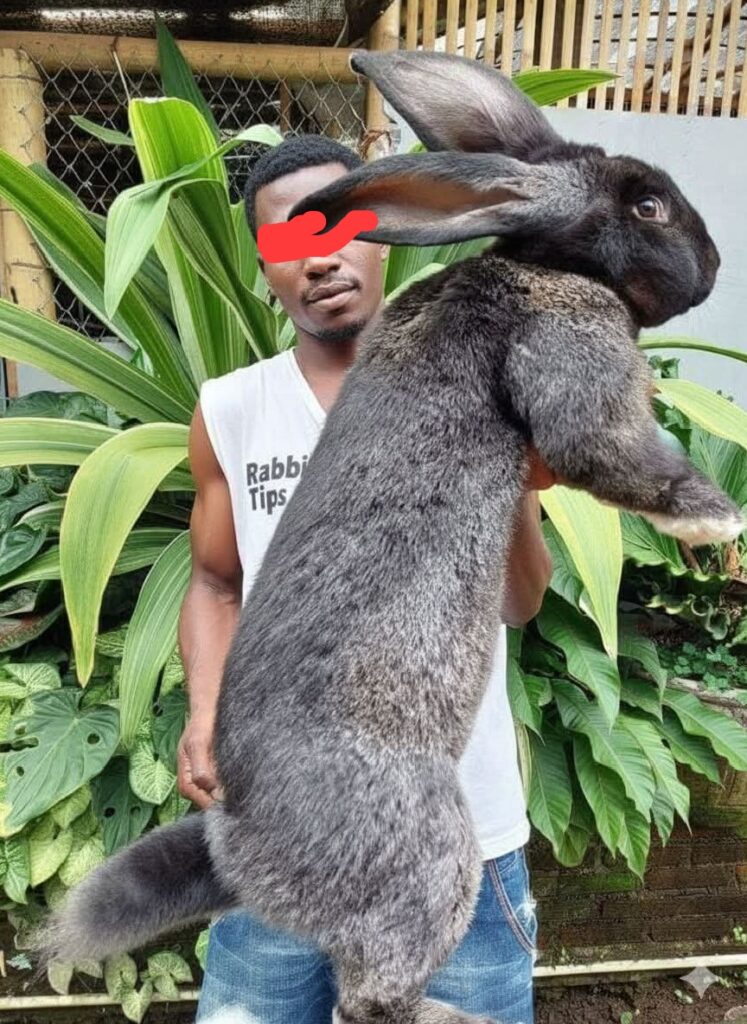
Best Age to Spay or Neuter a Rabbit in Uganda — and Why Timing Matters
If you’ve ever wondered “When is the right time to spay or neuter my rabbit?” — you’re not alone. It’s one of the most common questions we get from rabbit owners at Superior Animal Clinic in Makindye, Kampala.
Just like puppies and kittens, rabbits also reach sexual maturity quite early — and knowing when to schedule their surgery can make a big difference in their long-term health, behavior, and comfort.
Let’s break it down simply:
For Male Rabbits (Neutering)
- Best age: Between 4 to 6 months old, or once the testicles are visible.
- Why this age matters:
- At this stage, male rabbits (bucks) begin marking territory with urine and can become territorial or aggressive.
- Neutering helps stop these behaviors early and prevents fighting between rabbits.
- It also prevents unwanted breeding if you keep both male and female rabbits together.
- At this stage, male rabbits (bucks) begin marking territory with urine and can become territorial or aggressive.
At Superior Animal Clinic, we perform safe, gentle neutering procedures using modern anesthesia suitable for small animals like rabbits. Your buck will usually go home the same day, calm and pain-free.
For Female Rabbits (Spaying)
- Best age: Between 5 to 7 months old, ideally before the first heat cycle.
- Why it’s so important:
- Unspayed female rabbits (does) have a very high risk — up to 80% — of developing uterine or ovarian cancer by the age of 3–4 years.
- Spaying at the right age completely eliminates this risk.
- It also reduces mood swings, nesting behaviors, and aggression.
- Unspayed female rabbits (does) have a very high risk — up to 80% — of developing uterine or ovarian cancer by the age of 3–4 years.
At Superior Animal Clinic, we often perform spays for female rabbits with uterine cancer — and we’ve seen firsthand how early spaying could have prevented it. That’s why we always encourage rabbit owners across Ntinda, Muyenga, Buziga, Munyonyo, Nakasero, Rubaga, and beyond Kampala not to wait too long.
🧠 What If My Rabbit Is Older Than 1 Year?
Don’t worry — it’s never too late to spay or neuter your rabbit.
Older rabbits can still safely undergo surgery after a pre-surgical health check and blood work to make sure they’re strong enough for anesthesia.
Many rabbit owners in Old Kampala, Katwe, Nakawa, and Lubowa bring in mature rabbits for surgery, especially if they start showing signs of:
- Aggressive or destructive behavior
- Mammary or uterine swelling
- Frequent false pregnancies
- Marking territory with urine
Our vets at Superior Animal Clinic will guide you through every step — from pre-surgery preparation to aftercare — ensuring your rabbit stays safe and stress-free.
🕒 In Summary
| Rabbit Type | Ideal Age | Benefits |
| Male (Neuter) | 4–6 months | Stops aggression, urine marking, and unwanted mating |
| Female (Spay) | 5–7 months | Prevents cancer, controls behavior, improves lifespan |
| Older Rabbits | Any age (after vet check) | Safe with proper evaluation and monitoring |
Timing really matters when it comes to your rabbit’s health. Early spay or neuter not only prevents life-threatening diseases but also helps your rabbit become calmer, friendlier, and easier to care for.
At Superior Animal Clinic, we’re here to help you make that decision confidently. Whether your rabbit is a playful New Zealand White, a gentle California Rabbit, or a cuddly Dutch Bunny, we’ll ensure they receive safe, professional, and loving care.
Cost of Rabbit Spay and Neuter in Uganda
At Superior Animal Clinic, the cost of rabbit spaying or neutering in Kampala typically ranges between UGX 150,000 – 450,000, depending on your rabbit’s size, age, and health status.
This includes:
- Pre-surgical examination
- Anesthesia and pain control
- Surgery performed by an experienced exotic pet veterinarian
- Post-surgery monitoring and discharge medication
How Rabbit Spay and Neuter is Done at Superior Animal Clinic
- Pre-Surgery Exam: Our vet performs a full physical exam and, if necessary, blood tests to ensure your rabbit is fit for anesthesia.
- Anesthesia: We use safe, modern anesthetic protocols suitable for small animals.
- Surgery:
- Spay (females): Removal of uterus and ovaries to prevent cancer and pregnancy.
- Neuter (males): Removal of testicles through a small incision.
- Spay (females): Removal of uterus and ovaries to prevent cancer and pregnancy.
- Pain Control & Recovery: We use gentle warming, oxygen support, and pain medication for smooth recovery.
- Post-Surgery Monitoring: Your rabbit stays under supervision until it is fully awake.
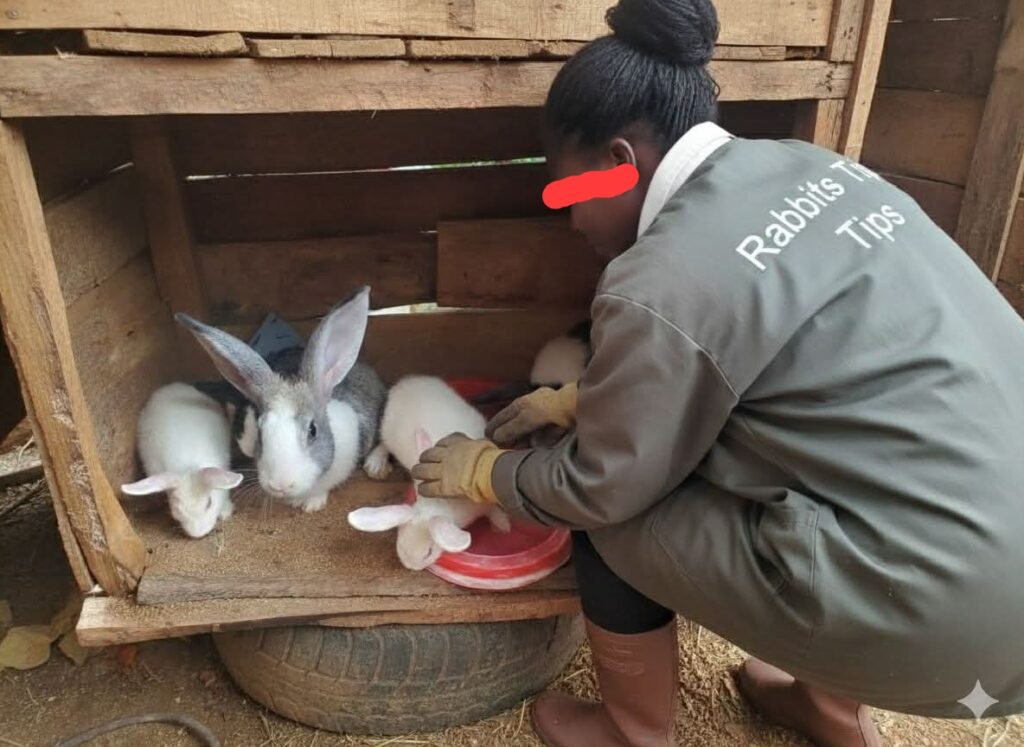
How to Prepare Your Rabbit for Spay or Neuter in Uganda
Preparing your rabbit for surgery is one of the most important steps in ensuring a smooth, safe, and stress-free experience. At Superior Animal Clinic in Makindye, Kampala, we make this process simple — and with a few easy preparations, you can help your rabbit feel comfortable before, during, and after their spay or neuter procedure.
Let’s walk through what you should do before bringing your bunny in:
1. Create a Calm, Stress-Free Environment
Rabbits are naturally sensitive and can easily get nervous before travel or a vet visit. The night before surgery, keep your rabbit in a quiet, familiar space — away from loud noises, children, or barking dogs. Talk to them gently and make sure they feel safe.
If your rabbit lives with a companion, you can let them stay nearby to reduce stress, but avoid rough play before the procedure.
2. Use a Proper Carrier When Bringing Your Rabbit to the Clinic
On the day of the appointment, place your rabbit in a well-ventilated, sturdy carrier. You can line it with a soft towel or blanket to prevent slipping during transport.
At Superior Animal Clinic, we see many rabbits from areas like Ntinda, Muyenga, Munyonyo, Bugolobi, Nakasero, and Makindye, and we always recommend keeping the carrier covered with a light cloth to make your rabbit feel more secure on the way.
3. Do Not Fast Your Rabbit Before Surgery
Unlike dogs or cats, rabbits should never be fasted before surgery. Their digestive systems are delicate and must keep moving constantly.
Before coming to the clinic:
- Keep hay and water available at all times.
- You can also give small amounts of fresh vegetables or pellets.
- Bring along your rabbit’s favorite snacks (like a small piece of carrot or apple) — our team will offer it once your rabbit is awake and alert after surgery.
This helps prevent digestive problems and ensures a smooth recovery.
4. Make Sure Your Rabbit is Healthy
If your rabbit has been sneezing, has diarrhea, loss of appetite, or seems weak, let us know before the appointment. Our veterinarians may need to perform a quick health check or postpone surgery until your rabbit is strong enough.
At Superior Animal Clinic, we do a pre-surgical examination and blood test when necessary, especially for older rabbits or those with cancer or reproductive issues. This ensures your pet is safe to undergo anesthesia.
5. Bring Their Regular Food and Some Comfort Items
After surgery, familiar smells and tastes help rabbits relax faster. You can bring their regular hay, pellets, or vegetables, and even a small blanket or toy from home.
We’ll make sure your rabbit wakes up gently, in a warm, calm environment. Seeing or smelling something familiar can ease anxiety and help them recover better.
6. Talk to Our Team Before the Appointment
Before the procedure, our veterinarians will walk you through everything — from anesthesia safety, pain control, and aftercare instructions to what signs to watch for at home.
You’re encouraged to ask any questions — we want you to feel confident and informed every step of the way.
🌿 Quick Summary — Rabbit Spay and Neuter Preparation Checklist
✅ Keep your rabbit calm and comfortable
✅ Do not fast your rabbit — always provide hay and water
✅ Use a safe, ventilated carrier
✅ Inform the vet about any illness
✅ Bring their regular food and comfort items
✅ Follow your vet’s instructions closely
At Superior Animal Clinic, we understand how much your rabbit means to you.
How to Care for a Rabbit After Spay or Neuter in Kampala, Uganda
Bringing your rabbit home after surgery can feel a little scary, especially if it’s your first time. But don’t worry — at Superior Animal Clinic, Makindye, we guide every pet parent through each step so their rabbit recovers safely and comfortably.
After spay or neuter surgery, your rabbit needs a calm, clean, and stress-free environment to heal. Below are practical tips that every rabbit owner in Kampala, Ntinda, Muyenga, Bugolobi, Munyonyo, Rubaga, Nakawa, Makindye, and nearby areas can follow to ensure a smooth recovery.
1. Create a Quiet, Safe Recovery Space
After surgery, rabbits should rest in a quiet indoor area, away from loud noises, children, and other pets.
- Use a soft towel or blanket as bedding (avoid sawdust or wood shavings that could irritate the incision).
- Keep the hutch or cage clean and well-ventilated but warm.
- Make sure your rabbit can move comfortably without needing to jump or climb.
At Superior Animal Clinic, we always advise keeping your rabbit in a small recovery pen for at least 7–10 days to prevent too much activity.
2. Monitor Eating and Drinking Closely
It’s normal for your rabbit to eat less for the first 12–24 hours, but they should start nibbling again soon. Rabbits must eat to keep their digestive system active.
- Offer fresh hay, pellets, and leafy greens.
- Encourage them with favorite treats like carrots or apple slices (in moderation).
- Always provide clean, fresh water — dehydration can slow recovery.
If your rabbit refuses to eat for more than a day, contact Superior Animal Clinic immediately — it could be a sign of post-surgical stress or pain.
3. Follow the Vet’s Medication Instructions
After spay or neuter surgery, your rabbit will receive pain relief and antibiotics to prevent infection.
- Give all medications exactly as prescribed.
- Don’t skip doses, even if your rabbit looks better.
- Never use human medicines — they can be toxic to rabbits.
Our vets at Superior Animal Clinic, Makindye always demonstrate how to safely administer medication before you leave the clinic.
4. Keep an Eye on the Surgical Site
Check your rabbit’s incision twice a day:
- It should look clean, dry, and slightly pink.
- A little swelling is normal, but redness, bleeding, or pus is not.
- Don’t let your rabbit lick or chew the stitches — we can provide an Elizabethan collar (cone) if needed.
If you notice any swelling, discharge, or strange behavior, contact Superior Animal Clinic right away for a post-surgery review.
5. Limit Jumping and Rough Movement
Even if your rabbit seems energetic after a few days, it’s best to limit activity for 10–14 days.
- Avoid letting them climb stairs, jump on furniture, or play roughly with other rabbits.
- Keep their exercise gentle — short walks or soft playtime in a confined area is perfect.
At our clinic, we always say: “Calm rabbits heal faster.”
6. Watch Their Poop and Urine
Rabbits that are eating well should continue to poop normally.
- If you notice very few droppings or none at all, it may mean gut slowdown (ileus) — a common post-surgery risk.
- Bring your rabbit back to Superior Animal Clinic, Makindye for quick treatment if this happens.
7. Keep the Environment Comfortable
Rabbits recover best in temperatures between 18–25°C.
- Avoid extreme heat or cold.
- Keep them indoors, especially at night.
- Provide fresh air and natural light, but avoid direct drafts.
🐾 8. Schedule a Post-Surgery Checkup
Always bring your rabbit back for a follow-up appointment within 7–14 days after surgery.
Our vets will:
- Check healing progress
- Remove or check stitches if needed
- Make sure your rabbit is pain-free and eating well
These visits are included in our rabbit surgery care package at Superior Animal Clinic, and they’re essential for full recovery.
💕 9. Give Gentle Love and Reassurance
Your rabbit has been through a big day — so be patient, gentle, and loving.
- Speak softly.
- Avoid too much handling for the first few days.
- Offer treats and soft petting when they’re ready.
Most rabbits recover completely within 7–14 days, and once healed, they’re usually calmer, friendlier, and healthier.
🌍 Why Choose Superior Animal Clinic, Makindye for Rabbit Spay and Neuter
✔️ Specialized care for exotic pets and rabbits
✔️ Safe anesthesia and sterile surgical environment
✔️ Compassionate staff experienced in small mammal handling
✔️ Affordable prices and follow-up support
✔️ Conveniently located along Salaama Road, Makindye — easily accessible from Ntinda, Muyenga, Bugolobi, Munyonyo, Rubaga, Lubowa, and beyond
Your rabbit deserves the best. Trust Superior Animal Clinic — the leading veterinary hospital for rabbit spay and neuter in Kampala, Uganda.
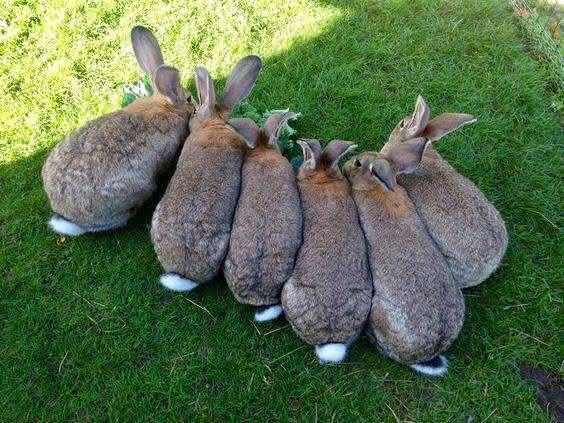
FAQs About Rabbit Spay and Neuter in Kampala, Uganda
1. Where can I spay or neuter my rabbit in Kampala, Uganda?
You can spay or neuter your rabbit at Superior Animal Clinic, located along Salaama Road in Makindye, Kampala. We’re the leading veterinary clinic for rabbit spay, neuter, and cancer surgery in Uganda, trusted by pet owners from Ntinda, Muyenga, Munyonyo, Bugolobi, Lubowa, and Rubaga.
2. How much does it cost to spay or neuter a rabbit in Uganda?
At Superior Animal Clinic, Makindye, the cost of rabbit spay or neuter ranges from UGX 150,000 to UGX 300,000, depending on your rabbit’s size, age, and health condition. This includes pre-surgery exams, anesthesia, surgery, and medication.
3. What is the best age to spay or neuter a rabbit in Kampala?
We recommend neutering male rabbits at 4–6 months and spaying females at 5–7 months, before their first heat cycle. However, adult rabbits and those with reproductive cancer can still undergo surgery after a vet assessment.
4. Is it safe to spay or neuter my rabbit in Uganda?
Yes, it’s completely safe when performed by experienced vets at Superior Animal Clinic, Makindye. We use specialized anesthesia, sterile equipment, and close post-surgery monitoring to ensure your rabbit’s safety.
5. Can a rabbit with cancer be spayed or neutered?
Absolutely. In fact, spaying is often part of the treatment for female rabbits with uterine or ovarian cancer. Our veterinary team regularly performs these surgeries at Superior Animal Clinic to remove cancerous organs and improve survival.
6. How long does it take for a rabbit to recover after spay or neuter surgery?
Most rabbits recover within 7 to 14 days. During this time, keep your rabbit indoors, limit jumping or climbing, and follow your vet’s medication and feeding instructions.
7. What should I feed my rabbit after surgery?
After surgery, feed your rabbit fresh hay, leafy greens, and pellets. Encourage eating soon after returning home — rabbits must keep their digestive system moving to recover well.
8. Will my rabbit’s behavior change after being neutered?
Yes, neutered rabbits are usually calmer, friendlier, and easier to litter train. They also stop marking territory and become more social with other rabbits.
9. Can I bring my rabbit from outside Makindye for spay or neuter?
Of course! Many rabbit owners travel from Ntinda, Lubowa, Kololo, Ndejje, Muyenga, Munyonyo, Bugolobi, and Rubaga to our clinic in Makindye because of our expertise with small animals and exotic pets.
10. What should I do before bringing my rabbit for spay or neuter?
Don’t fast your rabbit. Keep them eating and drinking normally before surgery. Bring them in a calm, secure carrier with a bit of hay inside. Our team at Superior Animal Clinic will handle the rest.
11. How do I care for my rabbit after surgery?
Keep them in a quiet indoor space, limit activity, and monitor the incision daily. Give all prescribed medications and return for your follow-up visit after 3–5 days.
12. What are the benefits of spaying or neutering my rabbit in Uganda?
Spaying and neutering help prevent reproductive cancers, reduce aggression, control population, and promote a longer, healthier life for your rabbit.
13. Are rabbit spay and neuter surgeries painful?
Your rabbit is fully anesthetized during the procedure and receives pain relief afterward. At Superior Animal Clinic, we make sure your pet is comfortable throughout recovery.
14. What are the signs of complications after rabbit spay or neuter?
If your rabbit stops eating, becomes lethargic, or if the incision site shows redness, swelling, or pus, contact Superior Animal Clinic, Makindye immediately. Early attention prevents serious issues.
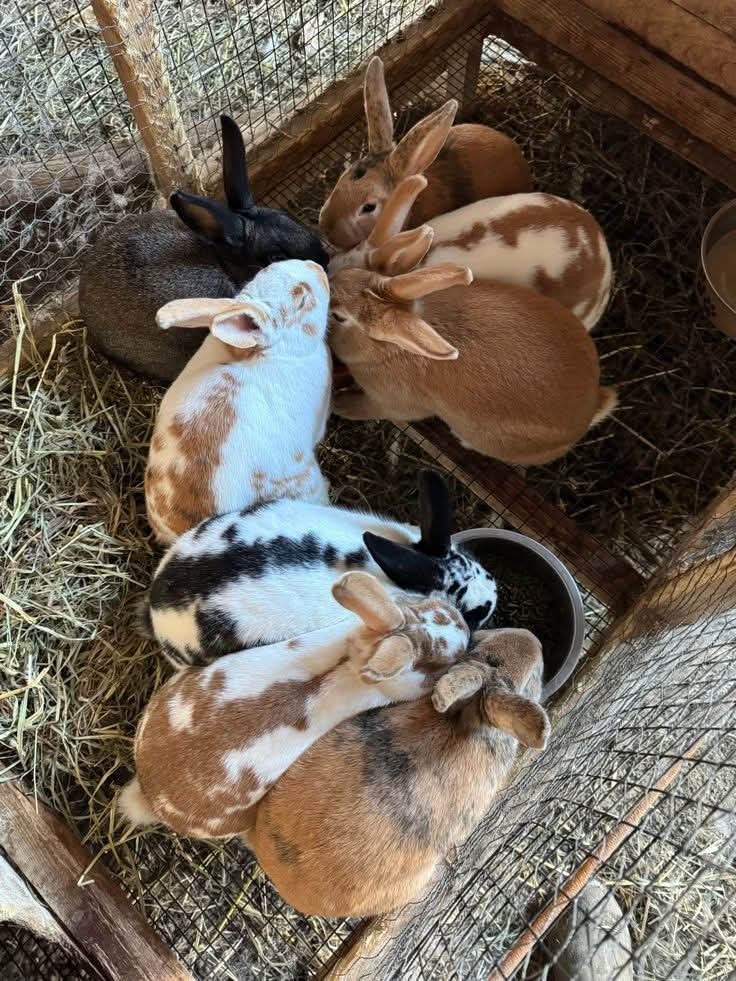
15. How can I book an appointment for rabbit spay or neuter in Kampala?
Booking is easy! You can call, WhatsApp, or visit Superior Animal Clinic along Salaama Road, Makindye. We’re also listed on Google Maps for quick directions and appointments.
16. Why choose Superior Animal Clinic for rabbit spay and neuter in Uganda?
Because we specialize in rabbit and exotic pet care, use advanced anesthesia, maintain a sterile surgical setup, and provide compassionate aftercare. Our team has years of experience treating rabbits from Makindye, Ntinda, Muyenga, and all over Kampala.
17. Can spaying or neutering improve my rabbit’s lifespan?
Yes! Spayed and neutered rabbits are proven to live longer, healthier lives with fewer reproductive diseases and less stress-related behavior.
18. How soon can I bathe my rabbit after spay or neuter?
Do not bathe your rabbit until the incision has completely healed — usually after 14 days. If cleaning is necessary, use a damp cloth to gently wipe their fur.
19. Does Superior Animal Clinic handle emergency post-surgery cases?
Yes. We offer 24-hour emergency support for post-surgery concerns such as bleeding, swelling, or lack of appetite. You can contact us anytime for urgent care.
20. What makes rabbit surgery at Superior Animal Clinic different from other vets in Kampala?
We combine modern equipment, experienced exotic animal vets, and personalized follow-up care — ensuring every rabbit receives world-class treatment right here in Uganda.
📍 Visit the Best Rabbit Vet in Kampala
If you’re in Kampala or nearby neighborhoods and searching for “best vet to spay my rabbit near me,” “rabbit neutering clinic Kampala,” “affordable rabbit surgery Uganda,” or “veterinary clinic for rabbits in Makindye” —
👉 Superior Animal Clinic is your trusted choice.
📍 Location: Salaama Road, Makindye, Kampala, Uganda
📞 Call/WhatsApp: +256771909946
